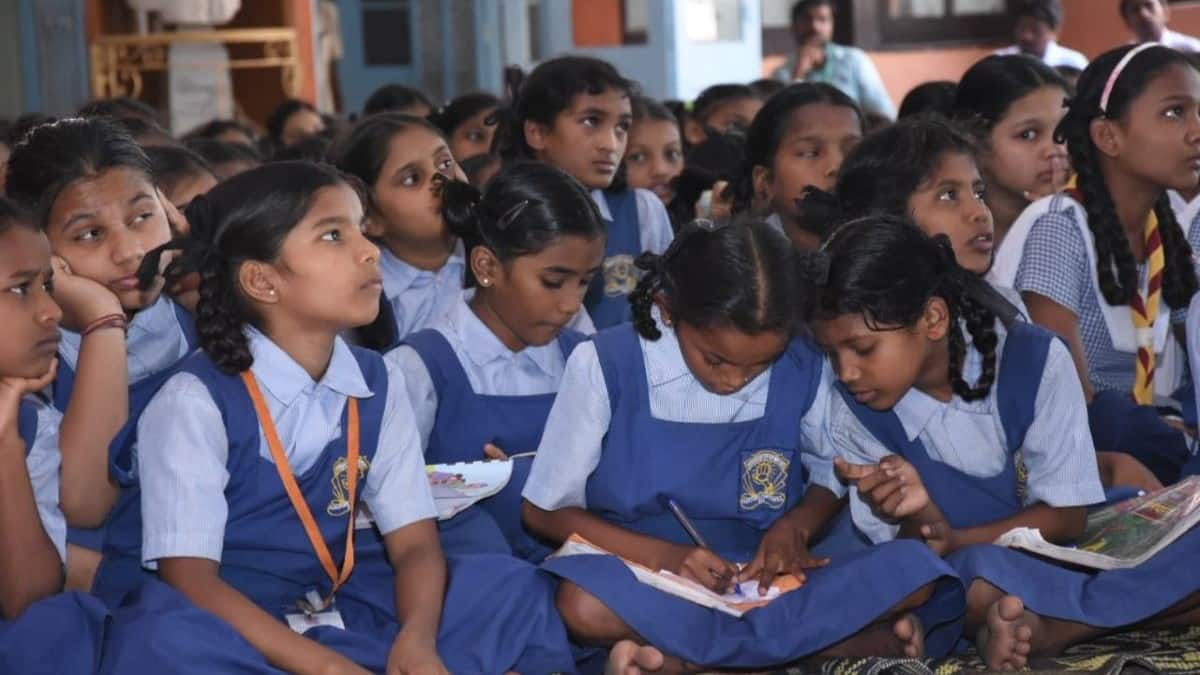Viksit Maharashtra 2047: Bagless schools, tablets for students, bridge courses for migrants in education plan
Musab Qazi | July 16, 2025 | 07:38 PM IST | 3 mins read
Maharashtra’s school education blueprint, with short, mid and long-term goals, has been drawn up as part of the Viksit Maharashtra campaign, itself part of Viksit Bharat 2047

Maharashtra Schools: 'Bagless' digital schools deploying tablets and learning apps, safe spaces for students to ask questions and bridge programmes for migrant children: these recommendations and more are part of the Maharashtra government's draft 'vision document' to achieve universal school enrolment and 100% learning proficiency at the secondary school level within the next two decades.
The document is part of the state's Viksit Maharashtra@2047 mission, which follows the central government's Viksit Bharat@2047 goal of making India a developed country by the centenary year of independence. The draft, prepared by the state's school education department, has been released for feedback from Maharashtra SCERT (State Council for Educational Research and Training) experts and social organisations.
The state has set multiple short, mid and long-term goals, to be achieved by 2029, 2035 and 2047, respectively, in the space of school education. These targets have been divided and grouped under the following heads or “pillars”:
Integrated physical and digital infrastructure for learning
Empowering teaching professionals
Transforming learning and curriculum
Equity, inclusion and wellbeing
Governance, policy reform and lifelong learning
Maharashtra education plan and PARAKH
The plan comes close on the heels of the first nationwide PARAKH survey, which highlighted glaring shortfalls in learning outcomes among students at various school levels.
The vision document, too, notes that over 75% of Class 10 students in government schools scored below basic proficiency levels in science, with mathematics showing similarly poor results. It also highlighted the poor student-teacher ratio in schools, blaming delays in recruitment for vacant teaching posts in several parts of Maharashtra.
The draft envisions an "inclusive, innovative, and globally benchmarked" school education system for the state. Modern pedagogy, digital and climate-resilient infrastructure and a curriculum "rooted in Indian values and global competencies" have been listed as the means to attain the stated goals.
Teacher training, safe spaces, vocational education
As part of the short-term plan, the government has set out to ensure the National Education Policy (NEP)-aligned training for all the teachers across government and aided schools. A minimum of 50 hours of Continuous Professional Development (CPD) annually, focused on digital pedagogy, inclusive practices, and competency-based learning, has been suggested.
It also advocates orienting teachers towards global assessment standards, such as the Programme for International Student Assessment (PISA).
In a bid to introduce a 'tech-integrated learning', the state suggests a pilot programme to provide tablets and learning apps to students, and collect feedback from teachers and parents.
Furthermore, it envisages an artificial intelligence (AI)-powered personalised learning systems to support adaptive instruction, intelligent feedback, and data-driven academic support tailored to individual learners.
The document also wants schools to create "safe spaces" for students to engage with teachers, subject experts, and senior peers. "Maharashtra will promote student voice and agency by creating platforms for expression, feedback, and participation in school development activities, ensuring every child feels safe, heard, and valued," reads the draft.
The plan also provides for early exposure to vocational education - right from sixth grade - including foundational modules in emerging areas such as electric vehicle (EV) technology, AVGC-XR (Animation, Visual Effects, Gaming, Comics, Extended Reality), digital media, and basic electronics as well as life skills, coding, and environmental awareness. It recommends school–industry partnerships to provide real-world experience to students through internships.
Hostels, bridge courses, tracking on UDISE+
To make education more inclusive, the state plans to construct residential hostels in migration-prone districts. It also seeks to introduce special "bridging programmes" for mobile learners to ensure continuity in education and curb drop-outs.
"The state will integrate migrant child tracking systems with UDISE+ for real-time data monitoring and targeted support, enabling responsive planning and resource allocation," the draft further says.
The document expresses concern about the “over-reliance” on private and government-aided schools, as they cater to almost three-fourths of the student population in the state. Despite that, the state hopes to enhance support from the private sector for expertise and financial resources.
“A key enabler of these opportunities will be the enhanced collaboration with the private sector, facilitated by the upcoming CSR [corporate social responsibility] Cell within the School Education and Sports Department. While not the centerpiece, this mechanism will help mobilise resources, expertise, and innovation from corporate partners, accelerating improvements in infrastructure, digital learning, and inclusive education,” reads the document.
Follow us for the latest education news on colleges and universities, admission, courses, exams, research, education policies, study abroad and more..
To get in touch, write to us at news@careers360.com.